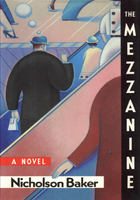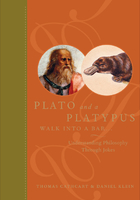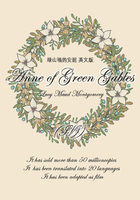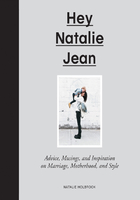WHEN IRIS KNOCKED ON MY BEDROOM door a few weeks after the announcement—August, maybe early September—it was easily one o'clock in the morning and I was huddled over my tab, in the middle of reading a complicated paragraph. I read it again from the start, pausing after each sentence to let it sink in.
Another knock. I sat upright. My eyes stayed stuck on the projected text hovering over my desk.
"Iris?" I asked. Her knock was easy to distinguish from Mom's.
"Hey." Iris creaked open the door. She still had on her makeup and that airy shirt she loved, even the leggings she normally yanked off two seconds after arriving home from a party. She gathered her hair into a loose, curly knot. "It's late. Whatcha doing?"
"I'm looking up symptoms. Quasi is sick. He's not eating at all. And he started wailing today."
"Quasi?"
"Yeah. I told you about him. A cat at the Way Station, the tabby one? He came in two months ago after getting hit by a car. He's the one with those blue eyes—I definitely told you that—and that scar from the accident that makes him look angry all the time."
"I remember. He sounds cute." Iris held up her hands in surrender. She laughed. "Even on days you're not working at the shelter, you're working at the shelter, huh? Don't they have a vet for this kinda thing?"
"The vet left." I tripped over my words to keep talking. I didn't want to linger on why the vet left, on why there were so many more cats brought in lately. "The volunteers and staff, we're doing OK looking things up ourselves, and for the surgeries we can bring someone in, but in Quasi's case—"
"Denise, whoa. You're talking way too fast. I know you're worried about Quasi. But did you do anything else today?"
I didn't think she actually knew who I was talking about. I talked about the cats at the Way Station all the time, but I liked Quasi especially. Iris had to remember him. I squelched the urge to keep trying to remind her. "Um. I talked to some friends online. And Grandma called about Dad's birthday. I think she wants to invite half of Paramaribo."
"How was dinner?"
I bit my lip, thinking back.
"You didn't have dinner?"
"I think I forgot. I just got caught up—I'm really worried about Quasi." It's like I saw a chance there: I latched on. "He's in pain, I think. I'm so nervous about his yowling, and if he doesn't start to eat …"
Iris let me keep talking this time, about the odds of it being an injury in his mouth we'd missed when we'd checked him that afternoon or maybe a urinary tract blockage, even though he was walking just fine, but I couldn't tell whether she was listening. "It's not your fault about dinner," she said after I had finished. "Why don't you check the cupboards for anything you like, and I'll fix it up for you. Give me a minute to talk to Mom."
I shifted uncomfortably in my chair. "When I went to the bathroom earlier, Mom …" With my bedroom door open, we both heard the TV yammering in the living room. Mom loved the background noise. Cooking shows, mostly. At that moment, I doubted she even heard a thing. When I saw her earlier, she'd been draped across the couch, eyes staring into nothing. Her mouth had been half open, in awe at something I couldn't see. "I don't think that you can talk to her right now."
"I thought she'd … Never mind. Let's get you something to eat, 'Nise."
Anke, the woman Captain Van Zand called to show us to our cabin, is nervous. Textbook nervous. She keeps swallowing audibly, and she picks at her fingernails as we walk back to the car for our backpacks, pick, pick, pick, until one time she hisses and squeezes her hand into a fist. When she opens it again, there's a speck of blood.
I know why she's nervous.
It's been minutes since the first possible time of impact, and we haven't noticed anything yet.
She helps us take our backpacks from the car. She pastes a bright smile on her face that I'm not sure is genuine—it fades too quickly. I'm told my own smiles are like that. "I'll give you a proper tour later," she says. "Let's get you a cabin first."
Mom is eager to keep up. Her feet smack into the ground with each step, heavy from the backpack. "I had no idea what to expect from these ships," she says, falling in line with Anke. "It's huge!"
I adjust my backpack straps until they feel less like they're cutting into my shoulders.
"It's a small model, if you'll believe it," Anke says.
I watch Anke's head bob as she walks. I have to look up to do so, since she's easily a head taller than I am, and I'm on the tall side of average. She's got red hair, sheet-straight and cut to her shoulders, maybe dyed. I don't know yet if I like her. She introduced herself as nicely as possible and has mostly ignored me since, but Iris tells me that's because everything about my manner screams for people to do just that. Don't look at me, don't talk to me, don't touch me.
Anke is back to picking at her fingernails. She turned the corner into the hallway, which is higher and broader than I'd thought, easily large enough to fit one of those cranes I saw earlier.
"You're only here for two days, and we're all distracted right now, so I won't keep you long. A lot of these lower levels are for storage or research. Some are administrative. You can go anywhere you like, within limits. I imagine these signs"—she gestures at a door on the right with a sign saying AUTHORIZED PERSONNEL ONLY—"are self-explanatory." For the first time, she glances at me.
"Right," I say when I realize she's waiting for an answer.
"Let me take you up to the residential levels." She turns another corner that leads to a set of wide stairs. "Are stairs OK? Or do you need the elevator? We're minimizing elevator use to save power. We can generate our own once we're up in the vacuum, but before then we're dependent on what we have stored."
I wonder how wealthy Anke is that she feels the elevator policy needs to be explained. The apartments in my neighborhood installed a pay-or-walk policy years ago. Sometimes my cane-using neighbor would let me sneak a ride with her, but she moved into a nursing home shortly before the announcement. I haven't used an elevator in months, and haven't wanted to, anyway. I used the stairs as endurance training: up, down, up, down. The end of the world is no time for weakness.
I can't believe it's actually today. January 29. The date still chills me.
We jog up several flights of stairs after Anke. She's walking fast as she takes us into another hallway and steps out through a wide opening. "Ta-da," she says softly.
It's a dome.
After a few seconds, I dare to follow Anke and Mom out of the hallway and onto the walkway it's connected to. I stoop as though the ceiling might fall on me. That'd be silly, though: I couldn't even hit the ceiling with a stone if I tried. The dome is so high, you could fit a whole apartment building here. It's mostly metal, with huge glass plates curved around in ever-expanding bands, revealing the clouded sky. We're up too high to see the surrounding airport buildings. It's like we're flying already.
I tear my eyes away to focus on what's in front of us, and see lush leaves wrapped around the railing a few meters away, and beyond that, more green, like bushes or—no—like treetops. The balcony we're on goes all the way around. Above us are several more identical walkways, and below us, at least two more, with the same vine-wrapped railings. And in the midst of all this is so much space, I could pack in several soccer fields with room to spare. Based on what I could see of it outside, the dome must span at least half the size of the ship.
My hands tighten on my pack's straps. They slide up and down, up and down. I take another step forward.
The space at the bottom of the dome, several stories down, reminds me of a park. Grass, knotted trees, a narrow brook. Benches. Bright patches of flowers. It's so clean and organized, it's like it's from a movie—prettier than any Amsterdam park I've seen.
"People need spaces to relax," Anke tells us. For the first time, I pick up traces of an Amsterdam accent—higher-pitched and nasal, a dropped n at the end of words. "It looks dark now, but we'll run the artificial sunlight soon enough." She picks at her nails again, pick, pick, as if the reminder that we'll need the artificial sunlight tipped her back over the edge.
"Are we Dutch, or are we Dutch?" Mom laughs and gestures at the thick blanket of clouds visible beyond the glass. The louder Mom gets, the quieter I get. She prattles on. "I mean, look at that. Artificial sunlight will be a step up."
Anke indicates the park, barely seeming to hear Mom. "This is the center of the ship. Several levels ringing the dome on the outside of the ship are reserved for crops. All these plants are real, by the way." She rubs a vine twined around the balcony railing. "We're building our own biosphere, and we need green to provide our oxygen. Most of these plants have secondary uses as food, medicine, fuel, and more. Everything on this ship has a practical purpose.
"Anyway, our water-filtering system and power management are below the storage and research levels, and … I'm giving my standard speech. I'll just show you to your cabin. We can schedule a tour for … after." Pick, pick, pick.
"We'd love to hear more!" Mom assures her as they walk. "Denise especially. She's been reading about all of this for months."
"After," I repeat. Any minute now. We'll get the quakes first, then the air blast, and … "Ms. Maasland said the ship was sturdy. Sturdy enough?"
"Of course." Anke doesn't look convinced. She's still picking at her fingers. "The Nassau is built to survive the vacuum of space for centuries. It can withstand meteoroid hits and all kinds of radiation. It'll survive some shaking."
The impact might be worse than "some shaking," but I hold my tongue. I eye the park instead.
Two people lie on the lawn, hands held, eyes aimed skyward. Like they're soaking in the sight one last time, or waiting, or both. (Any minute now.) The park is empty aside from them. Everyone else must be safely holed up inside their rooms.
Anke gestures. "You can choose any of these next cabins."
We follow her along the curve of the balcony until Mom chooses a door. Anke lets us inside, and while Mom instantly drops her pack to the floor, rolling her shoulders with exaggerated relief, I remove mine more slowly. Instantly, I miss the straps to fuss with. I press my hands flat to my sides, which is a poor replacement. All of a sudden, I'm hyperaware of my hands—of all of me—standing here awkwardly, taking in the room. It's about as big as our living room: a single bed on each side, two desks, two desk chairs, and a single floppy sofa seat that I already want to curl up on. It has wings beside the head, so you could practically drown in it and block out the world.
It was true what Mom said, though: I've been reading about generation ships. I want to drown Anke in questions. About the shielding, about the biosphere, about the engine, about just how many passengers this ship can support.
Particularly that last question.
"The furniture is locked down for now. Are you OK here?" Anke says. "Do you need anything else?"
"I'm fine," Mom confirms. "Denise?"
"I'm—"
The floor trembles.















